Curious about how to succeed with SEO in 2025? This SEO guide 2025 reveals essential strategies: keyword research, on-page SEO, technical optimization, and adapting to new trends like zero-click searches. Unlock the secrets to higher rankings and increased traffic.
Key Takeaways
SEO remains essential in 2025, requiring adaptation to trends such as zero-click searches and AI-driven tools for effective strategies.
Key factors for SEO success include quality content, regular updates, user experience, mobile optimization, and proper keyword research.
Consulting an SEO agency can provide expertise, save time, and help businesses navigate the complexities of SEO while mitigating online risks.
SEO Guide 2025: A Beginner’s Roadmap to Success
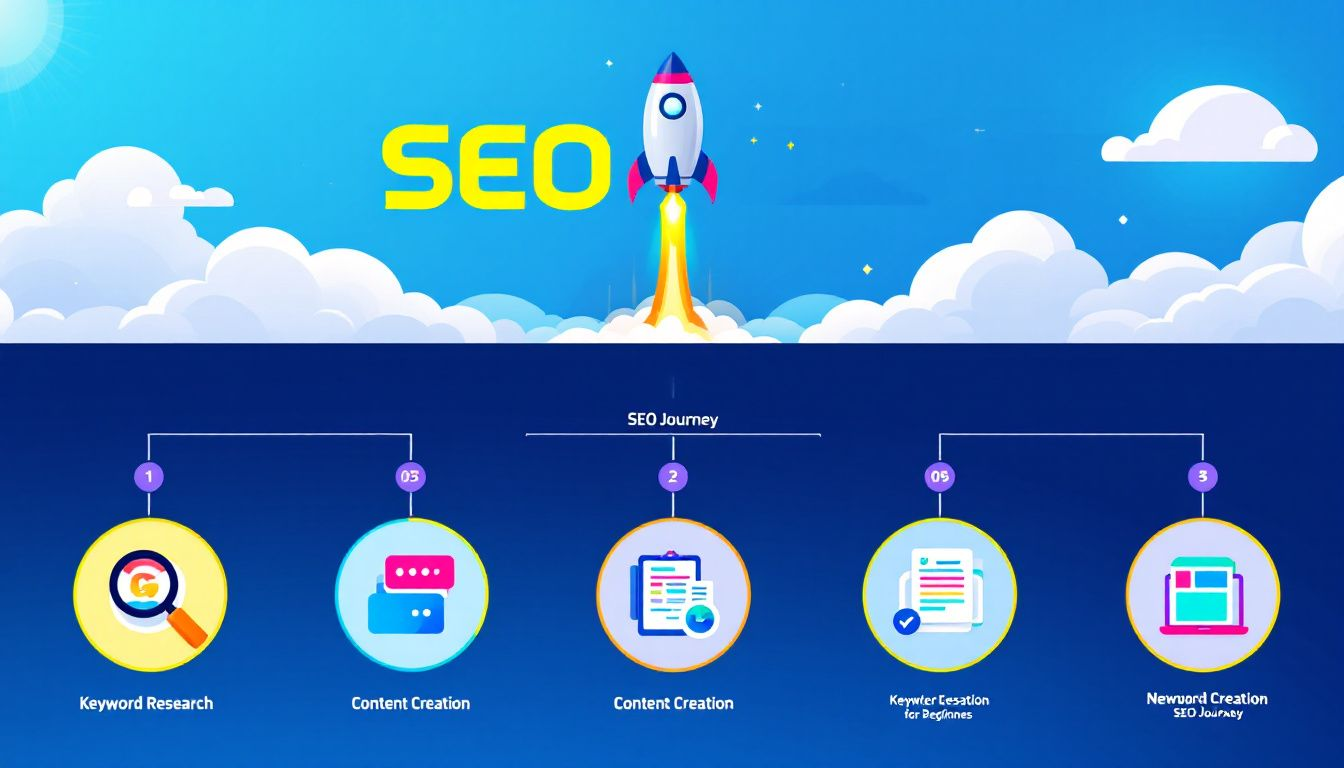
Search Engine Optimization (SEO) is the practice of enhancing a website’s visibility in search engines through unpaid, organic search results. In 2025, SEO continues to be a crucial marketing strategy for businesses aiming to increase traffic, leads, and revenue.
The landscape of SEO is ever-changing, requiring continuous attention to the latest trends. One significant shift is the rise of zero-click searches, where users find the information they need directly on the search engine results page (SERP) without clicking through to a website. This trend requires businesses to ensure their visibility across various platforms, not just Google. Optimizing for google search results through tools like Google Business Profile and link building is essential for improving online presence and being featured in the local pack of search results.
At its core, SEO focuses on improving a website’s ranking on the SERP to attract organic traffic. This involves a combination of:
Keyword research
Technical SEO
On-page optimization
Content creation
As search engines evolve, so do the strategies needed to achieve SEO success. Practitioners must adapt to new search engine algorithms and leverage AI-driven tools to enhance their efforts.
Continuous content production is crucial. Search engines reward websites that provide fresh, relevant content, so keeping your site updated regularly is beneficial. This guide will cover the SEO basics and advanced techniques, offering a comprehensive roadmap for beginners.
Understanding the fundamental principles of SEO and keeping up with the latest developments can significantly improve search engine rankings and drive organic traffic. Explore how SEO has evolved and the key ranking factors for 2025.
Introduction
Search Engine Optimization (SEO) is the practice of improving both the quantity and quality of traffic to a website through organic search engine results. It’s a vital component of any successful digital marketing strategy, directly impacting the visibility of web pages on search engines like Google. The ultimate goal of SEO is to attract more visitors to your site, leading to increased exposure and potential business growth.
One of the primary methods to achieve this is by optimizing various elements of your web pages, such as the meta description, title tag, and overall site structure. These elements help search engines understand the content of your site and rank it accordingly. Google’s search algorithm plays a crucial role in this process, determining how websites are ranked based on factors like indexing practices and core algorithm updates. For instance, a well-crafted meta description can significantly enhance your click-through rate, even though it’s not a direct ranking factor.
When people search for information online, they typically rely on search engines to find relevant pages. Making sure your site appears among these relevant pages is crucial for attracting organic traffic. This guide equips SEO beginners with the knowledge and tools needed to build an effective SEO strategy, ultimately increasing website visibility and traffic.
This guide covers various aspects of SEO, from understanding the basics to implementing advanced techniques. It explores keyword research, on-page optimization, technical SEO issues, and creating high-quality content that resonates with your audience.
By the end of this roadmap, you’ll have a solid understanding of SEO and be well-equipped to navigate its complexities. Begin by exploring how SEO has evolved and its implications for businesses in 2025.
What is Search Engine Optimization?
Definition of SEO
Search Engine Optimization (SEO) is the process of enhancing a website’s visibility and ranking on search engine results pages (SERPs) through various techniques. These techniques include keyword research, on-page optimization, technical optimization, and link building. The primary goal of SEO is to increase both the quality and quantity of website traffic by achieving higher rankings in search engines for specific keywords or phrases. By effectively implementing SEO strategies, businesses can attract more organic traffic, leading to increased exposure and potential growth.
Brief history of SEO
The concept of SEO dates back to the mid-1990s, coinciding with the advent of early search engines like Altavista and Yahoo!. In those early days, SEO techniques were relatively rudimentary, often involving practices like keyword stuffing and link farming to manipulate search engine rankings. However, as search engines evolved, so did the methods used to optimize websites. Modern SEO is a sophisticated and ever-changing field that requires a deep understanding of search engine algorithms, user behavior, and content marketing. Today, successful SEO strategies are built on providing valuable, relevant content and adhering to best practices that align with search engine guidelines.
Importance of SEO in digital marketing
SEO is a cornerstone of digital marketing, playing a vital role in enhancing a business’s online presence. By optimizing a website for search engines, businesses can significantly increase their chances of appearing in top search results for relevant keywords or phrases. This increased visibility can drive more traffic to the website, leading to higher conversion rates, more sales, and ultimately, greater revenue. In a competitive digital landscape, effective SEO strategies are essential for businesses to stand out and attract their target audience.
The Evolution of SEO in 2025
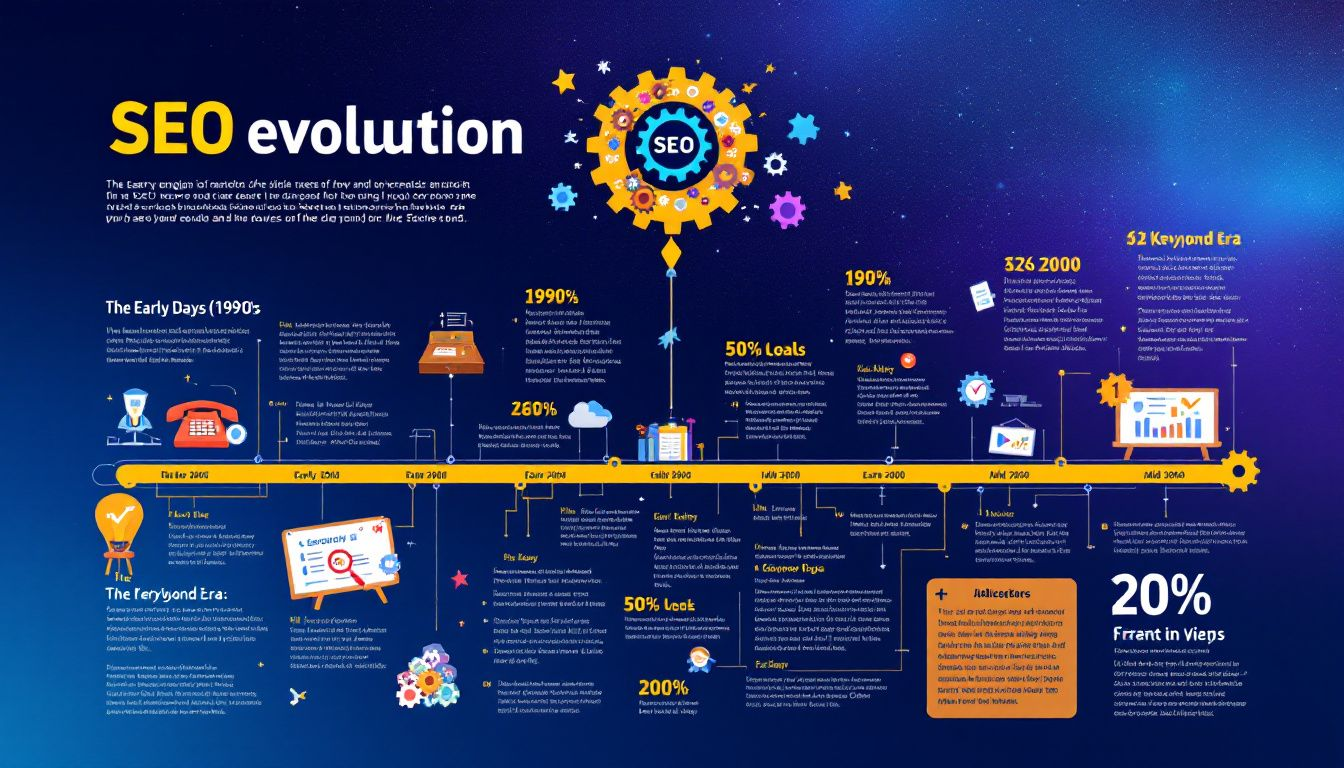
SEO has come a long way since its inception, and in 2025, it continues to be a critical component of online marketing strategies. The primary goal of SEO remains the same: to increase traffic, leads, customers, and revenue by improving a website’s visibility on search engines. However, the methods and tools used have evolved significantly.
One of the most notable changes is the rise of AI-driven tools that help SEO professionals enhance content creation and optimize strategies. These tools analyze vast amounts of data to provide insights into user behavior, search trends, and content performance. As a result, SEO practitioners can make more informed decisions and adapt their strategies to meet the ever-changing demands of search engine algorithms.
The concept of zero-click searches has also gained prominence. These are searches where users find the information they need directly on the SERP, without clicking through to a website. This trend has prompted businesses to focus on increasing their visibility across various platforms, rather than relying solely on Google’s search results. Understanding essential SEO terminology like search engine results pages (SERPs), organic search results, and specific features within Google’s search results is crucial. Adapting to these changes is essential for maintaining a competitive edge in the digital landscape.
Achieving SEO success involves targeting relevant keywords, creating high-quality content, and ensuring an excellent user experience. Search engines reward websites that offer valuable information and a seamless user experience with higher rankings. This means that businesses must continuously update and adapt their SEO strategies to keep up with the latest trends and algorithm changes.
The competitive nature of SEO has also intensified. With more businesses recognizing the importance of SEO, staying ahead of the competition requires constant vigilance and innovation. By staying updated on the latest SEO trends and leveraging advanced tools, businesses can enhance their online visibility and drive organic traffic.
The evolution of SEO in 2025 highlights the need for continuous adaptation and innovation. Understanding key changes and implementing effective strategies helps businesses achieve SEO success and thrive in the digital age.
How Search Engines Work
Crawling and indexing
Search engines like Google use sophisticated software programs known as “crawlers” or “spiders” to continuously scan the web for new and updated content. When a crawler visits a website, it follows hyperlinks to discover new pages and content. This process is known as crawling. Once the content is crawled, it is stored in a massive database called an index. Indexing involves organizing and storing the crawled content so that it can be quickly retrieved when a user submits a search query. The search engine’s algorithm then analyzes the indexed content to determine the most relevant and useful results for the user, ensuring that the search results are accurate and helpful.
Key Ranking Factors for 2025
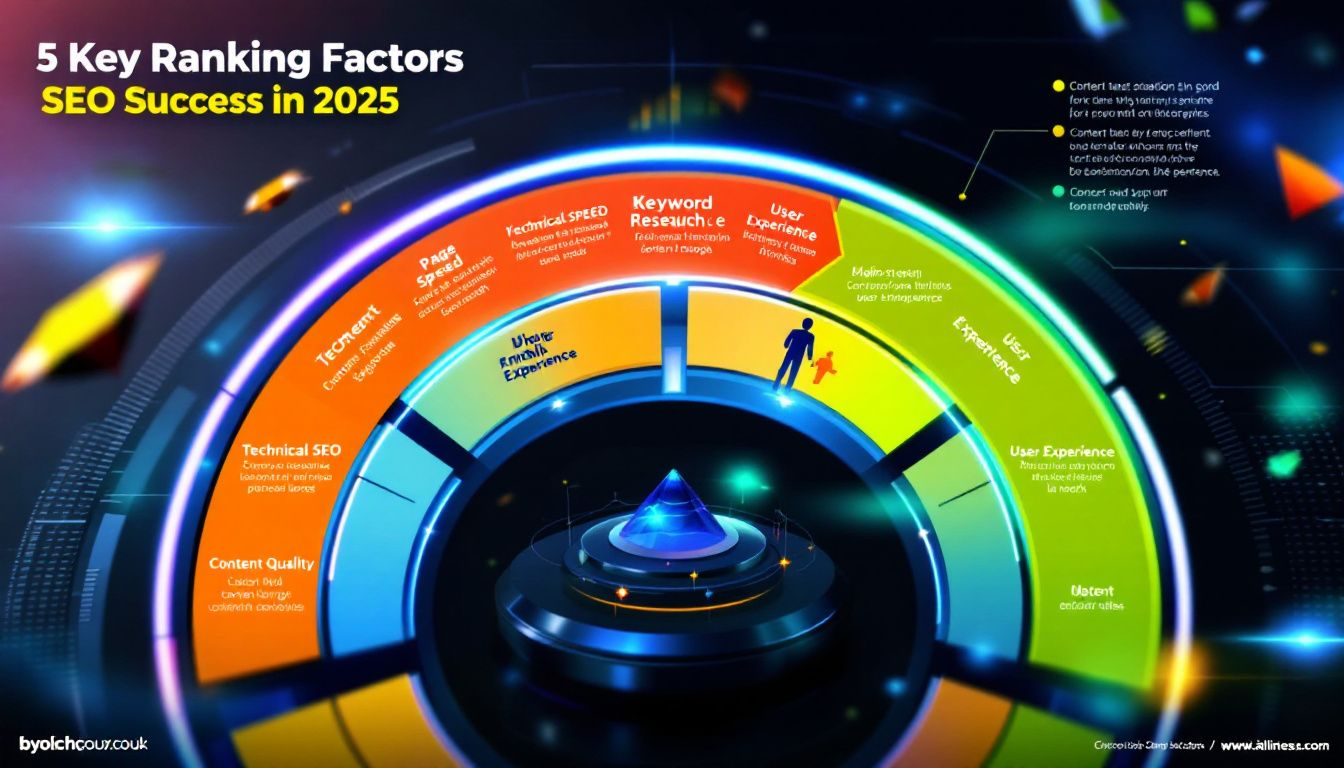
Several key factors influence search engine rankings in 2025, and understanding and optimizing for these elements is crucial. Quality content remains paramount. Search engines prioritize user-focused, authentic, and engaging content that addresses the needs and queries of users.
Regular content updates are now more critical than ever. Instead of merely generating new content, updating existing content ensures it remains relevant and valuable, helping maintain and even improve rankings. This approach also reinforces a site’s topical authority, establishing it as a comprehensive source on specific subjects.
User experience is another crucial ranking factor. Sites that offer a seamless, enjoyable experience are more likely to meet searchers’ needs, resulting in better rankings. This includes using clear headings and bullet points to enhance content skimmability and engagement.
Mobile optimization is indispensable. With Google using the mobile version of sites for ranking, ensuring your site is mobile-friendly is vital for maintaining and improving rankings. Additionally, Core Web Vitals, which include metrics like page speed, are essential for user experience and directly influence Google rankings.
Focusing on content quality, regular updates, user experience, and mobile optimization is key to achieving high search engine rankings in 2025. By understanding and optimizing for these factors, businesses can enhance their online visibility and drive organic traffic.
Advanced Keyword Research Techniques
Keyword research is a fundamental aspect of search engine optimization. It involves identifying the terms and phrases potential customers search for and optimizing your content to rank for those keywords. In 2025, understanding search intent has become more important than ever. Search engines prioritize the intent and context behind queries, moving beyond simple keyword matching.
Different types of search intent include informational, navigational, transactional, and commercial. Tools like Semrush’s Keyword Overview can help analyze search intent for a keyword, ensuring your content aligns with user needs and increasing the chances of ranking higher.
Keyword research tools like Ahrefs, SEMrush, and Google’s Keyword Planner are indispensable for uncovering keyword opportunities, providing essential information such as search volume, keyword difficulty, and search intent. These tools help discover keywords based on seed keywords, which are initial phrases used to find more keyword ideas.
Long-tail keywords are valuable because they have lower difficulty. Additionally, they often yield higher conversion rates. When identifying relevant keywords, their relevancy to your content and audience is the most important factor. Keyword research tools also offer keyword suggestions, analyzing competition, and evaluating keyword ranking difficulty.
Advanced keyword research techniques involve understanding search intent, using keyword research tools, and focusing on long-tail and relevant keywords. By mastering these techniques, businesses can optimize their content and improve their search engine rankings.
On-Page SEO Strategies
On-page SEO involves optimizing individual web pages to rank higher and earn more relevant traffic in search engines. Key elements include meta titles, meta descriptions, header tags, and URLs. Meta titles should be concise, ideally under 55 characters, with the primary keyword at the start to clarify the page’s content for users and search engines.
Meta descriptions, though not a direct ranking factor, significantly enhance click-through rates (CTR). A compelling meta description can positively impact CTR. Better title tags and meta descriptions can improve the CTR of a web page.
Header tags (H1, H2, H3) help structure content and should contain related high search volume keywords. The H1 tag should summarize the page’s content and include the main keyword. Using targeted keywords throughout the body copy helps search engines and users understand the page’s relevance.
A well-structured URL is short, descriptive, and easily readable. The URL slug identifies a specific page. It is located after the domain name. Avoiding keyword stuffing is crucial for maintaining content quality and relevancy.
In summary, on-page SEO strategies involve:
Optimizing meta titles and descriptions
Using header tags
Structuring URLs
Incorporating targeted keywords
By implementing these strategies, businesses can enhance their search engine rankings and drive organic traffic.
Technical SEO Essentials
Technical SEO is the foundation of a well-optimized website. It involves optimizing the technical aspects of a site to improve its visibility in search engines. Key components include HTTPS, site structure, Core Web Vitals, and mobile-friendliness. HTTPS is crucial as it encrypts data between the user’s browser and the website, providing security for transactions and user information.
Core Web Vitals metrics, which assess page speed, significantly influence user experience and SEO rankings. Mobile-friendliness is essential for SEO as search engines primarily use the mobile version of websites for ranking and indexing. Ensuring your site is mobile-friendly is vital for maintaining and improving rankings.
Optimizing site structure involves creating a logical hierarchy of pages and ensuring easy navigation. This helps search engines understand the content and improves user experience. Implementing XML sitemaps is another crucial aspect, as it improves search engine discoverability.
In summary, technical SEO essentials include:
HTTPS
Core Web Vitals
Mobile-friendliness
Site structure
XML sitemaps
By optimizing these technical aspects, businesses can enhance their search engine rankings and drive organic traffic.
Content Optimization for 2025

Content optimization is critical for achieving SEO success in 2025. Long-form content that thoroughly addresses user inquiries tends to achieve better rankings in search results. The optimal content length for ranking in Google is at least 2,000 words. The primary reason longer content ranks better is due to its comprehensiveness.
Incorporating rich media such as audio, graphics, video, polls, and interactive features can significantly enhance user engagement and improve SEO performance. Interactive content like polls and quizzes can make content more engaging and boost user interaction. Rich media helps break up long text, making content more appealing and easier to digest.
Regularly updating older content is essential to keep it relevant to the audience and maintain rankings. Content decay, the decrease in traffic over time, indicates a need for updates. Updating titles, headings, images, statistics, and publish dates in older web pages can improve SEO.
In summary, content optimization for 2025 involves creating long-form, comprehensive content, using rich media, and regularly updating older content. By implementing these strategies, businesses can improve their search engine rankings and drive more organic traffic.
Link Building Tactics
Link building is a vital aspect of SEO, helping to improve a website’s authority and search engine rankings. Building backlinks from reputable sites is more effective than acquiring low-quality links. One straightforward method for gaining backlinks is guest blogging. Identify high-authority blogs or websites that accept guest posts and use specific search operators like ‘your niche’ + ‘write for us’ to find these opportunities.
Creating high-quality, shareable content is essential for effective link-building. Visual content such as infographics can enhance shareability and attract backlinks. Hosting competitions can also incentivize sharing and increase backlink opportunities.
A sustainable approach to link building includes creating and promoting useful content and engaging in traditional PR. Engaging with influencers within your niche and asking for feedback on your content can increase the chances of getting backlinks without directly asking.
In summary, effective link building involves:
Gaining high-quality backlinks
Guest blogging
Creating shareable content
Engaging with influencers
Taking a sustainable approach
By implementing these tactics, businesses can improve their search engine rankings and drive more organic traffic.
Local SEO Best Practices
Local SEO is essential for businesses aiming to improve their visibility in local search results.
Maintaining an updated Google Business Profile is crucial for local SEO performance. This profile should include:
Business details
Photos/videos
Services
Customer reviews
Consistency in Name, Address, and Phone number (NAP) across platforms is vital for local SEO.
Embedding a Google Map on contact pages reinforces local relevance for search engines. Creating unique content for each service area can also improve local organic search results. Local link building opportunities are abundant due to the community ties of businesses.
Online reviews serve as a significant ranking signal in local SEO. Positive reviews can improve visibility, and responding to them shows a focus on improvement. Using tools like Semrush’s Listing Management tool can help submit business information to top directories.
In summary, local SEO best practices include:
Maintaining an updated Google Business Profile
Ensuring consistent NAP (Name, Address, Phone) information
Embedding Google Maps
Creating unique content
Building local links
Managing online reviews
By implementing these practices, businesses can improve their local search rankings and drive more organic traffic.
Measuring SEO Success
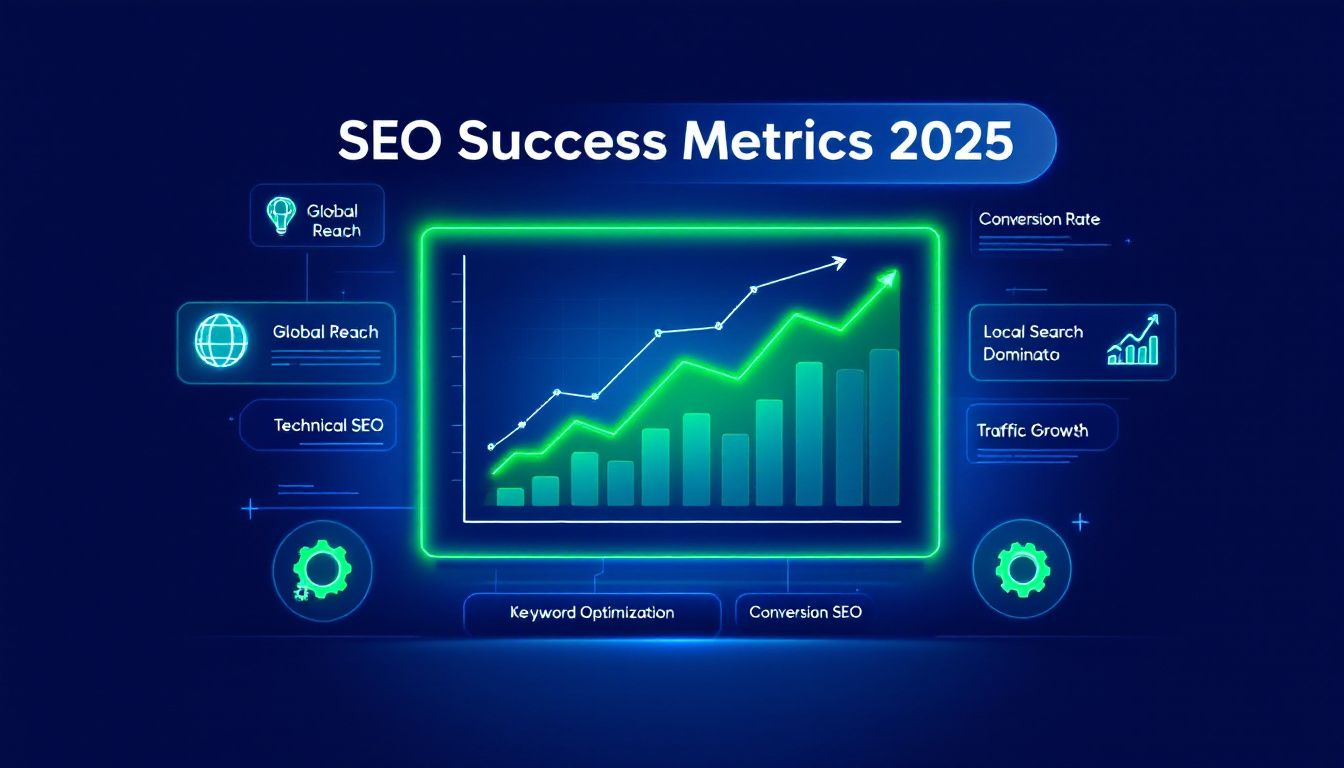
Measuring SEO success is crucial for understanding the effectiveness of your strategies and identifying areas for improvement. Key metrics to focus on include organic traffic, keyword rankings, engagement rates, and conversions. Conversions, such as purchases or lead submissions, are a definitive measure of SEO success.
Using tools like Google Analytics and Search Console helps track SEO tools progress effectively. Google Search Console is a free tool by Google for webmasters to monitor site performance and optimize visibility. Tools like Google Analytics provide valuable insights into SEO performance.
Click-Through Rate (CTR) gauges how effectively titles and descriptions attract clicks from search results. Rank tracking involves monitoring website performance in search engines for key keywords. Setting up Google Search Console requires establishing ownership verification of the website, a crucial step for proper access and management.
In summary, measuring SEO success involves tracking key metrics, including:
Using tools like Google Analytics and Search Console
Focusing on conversions
Monitoring CTR (Click-Through Rate)
Rank tracking
By continuously monitoring and analyzing these metrics, businesses can optimize their SEO strategies and improve their performance.
ROI Calculations for SEO Investments
Calculating the return on investment (ROI) for SEO is essential for understanding the value of your efforts. The organic traffic from search engines is crucial for business success due to its potential for customer conversion. Leads, sales, revenue, and profit are the primary metrics to measure SEO results.
The ROI for SEO can be calculated using the formula: (Profit – Investment) / Investment x 100. For example, if you invest $1,000 in SEO and generate $2,750 in profit, your ROI would be 175%. A typical average ROI for SEO in ecommerce is $2.75 for every dollar spent.
Utilizing an SEO agency can significantly increase a company’s sales and revenue, given the importance of search visibility. Agencies provide valuable data analysis that can inform broader business strategies beyond just SEO.
In summary, calculating ROI for SEO involves:
Measuring leads
Measuring sales
Measuring revenue
Measuring profit
Using the ROI formula
Considering the benefits of using an SEO agency
By understanding and optimizing the ROI of your SEO investments, businesses can make informed decisions and maximize their returns.
Top Considerations for Online Visibility in 2025
Enhancing online visibility is crucial for businesses aiming to succeed in the digital landscape of 2025. Search engine optimization remains a key strategy for improving web visibility. Traditional SEO practices continue to be valuable in generating traffic from search engines.
Backlinks play a significant role in SEO, signaling that a page is valuable and trustworthy. Off-page SEO activities, including earning links and mentions from reputable websites, are essential for improving website authority. The purpose of off-page SEO is to enhance website authority through quality backlinks.
Creating high-quality content and providing an excellent user experience are also critical for online visibility. Aspire Catalyst offers tailored Local SEO services, digital solutions, and comprehensive marketing strategies to boost online visibility.
In summary, top considerations for online visibility in 2025 include:
Focusing on SEO
Building quality backlinks
Engaging in off-page SEO activities
Creating high-quality content
Leveraging services from experts like Aspire Catalyst
By implementing these considerations, businesses can enhance their online visibility and drive organic traffic.
The Importance of Consulting an SEO Agency
Consulting an SEO agency can provide businesses with numerous benefits, helping them achieve SEO success. Outsourcing SEO tasks to an agency can save business owners significant time, allowing them to focus on other essential tasks. Hiring an SEO agency is often more cost-effective than maintaining an in-house team due to shared resources and expertise.
SEO agencies employ seasoned professionals who stay updated with the latest search engine algorithms and trends. They typically have experience across various industries, allowing them to implement effective strategies tailored to specific business needs. Agencies can efficiently respond to urgent changes and implement strategies quickly due to having a dedicated team.
Working with an SEO agency can help protect businesses from search penalties and other potential online risks. Aspire Catalyst is recognized as experts in Search Engine Optimization and Social Media Marketing for Non-Profits and Businesses in California.
In summary, consulting an SEO agency offers numerous benefits, including:
Time savings
Cost-effectiveness
Expertise
Quick response to changes
Protection from online risks
By partnering with an agency like Aspire Catalyst, businesses can achieve tremendous benefits and uplift their online presence.
Results
Here is a quick snapshot of the results of SEO efforts in less than 6 months.
Top NPO is Greater Los Angeles:
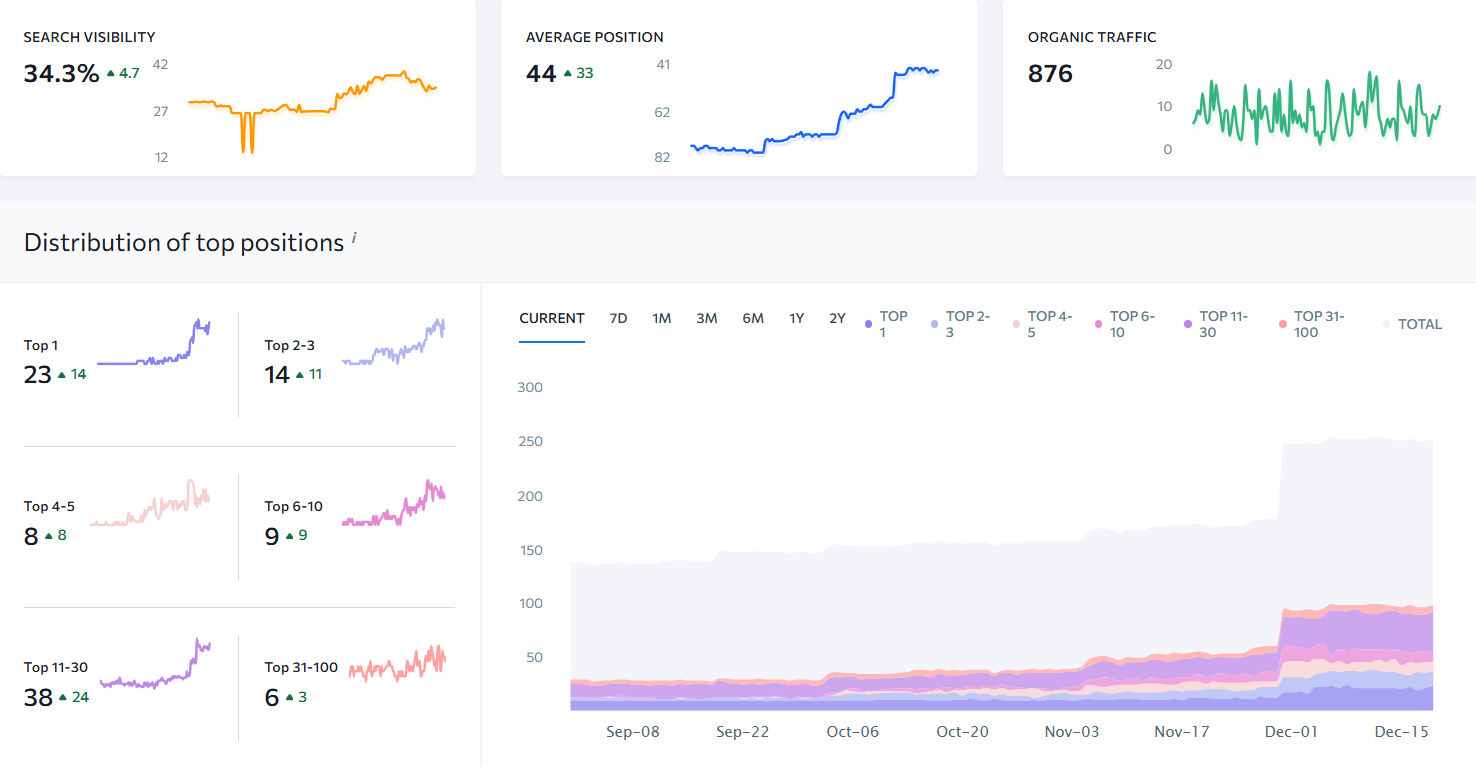
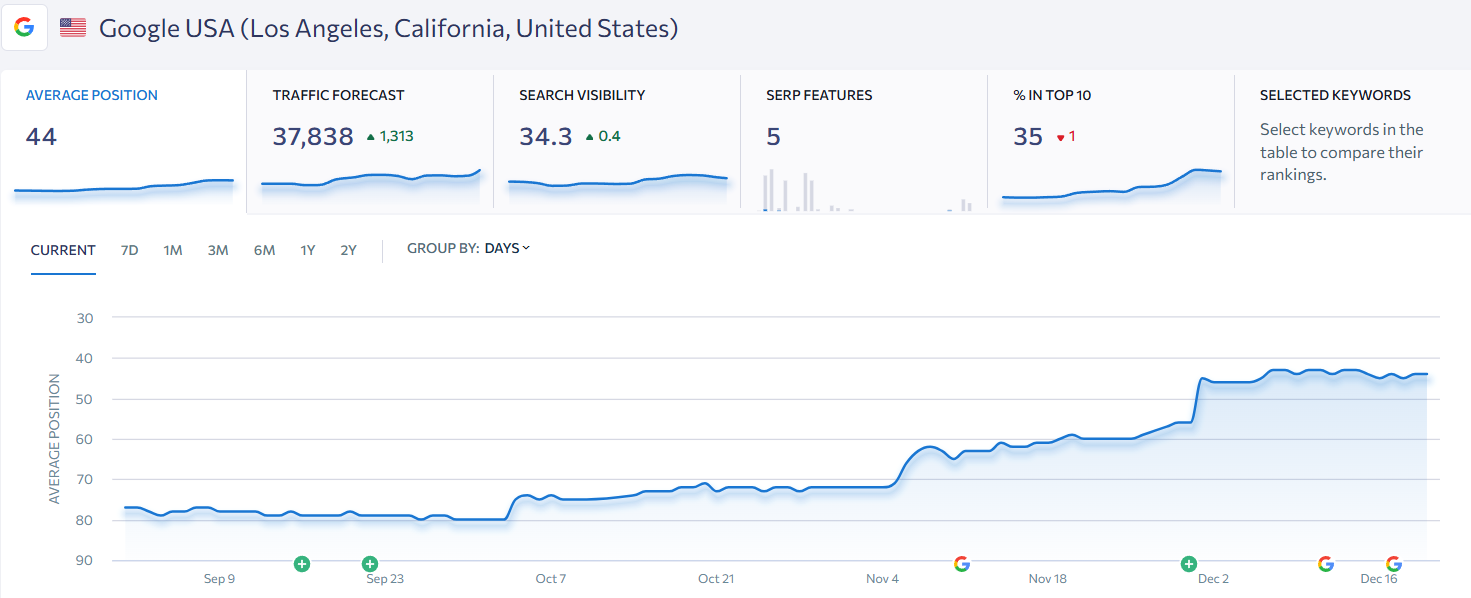
Top Japanese Ghost Kitchen in Pasadena
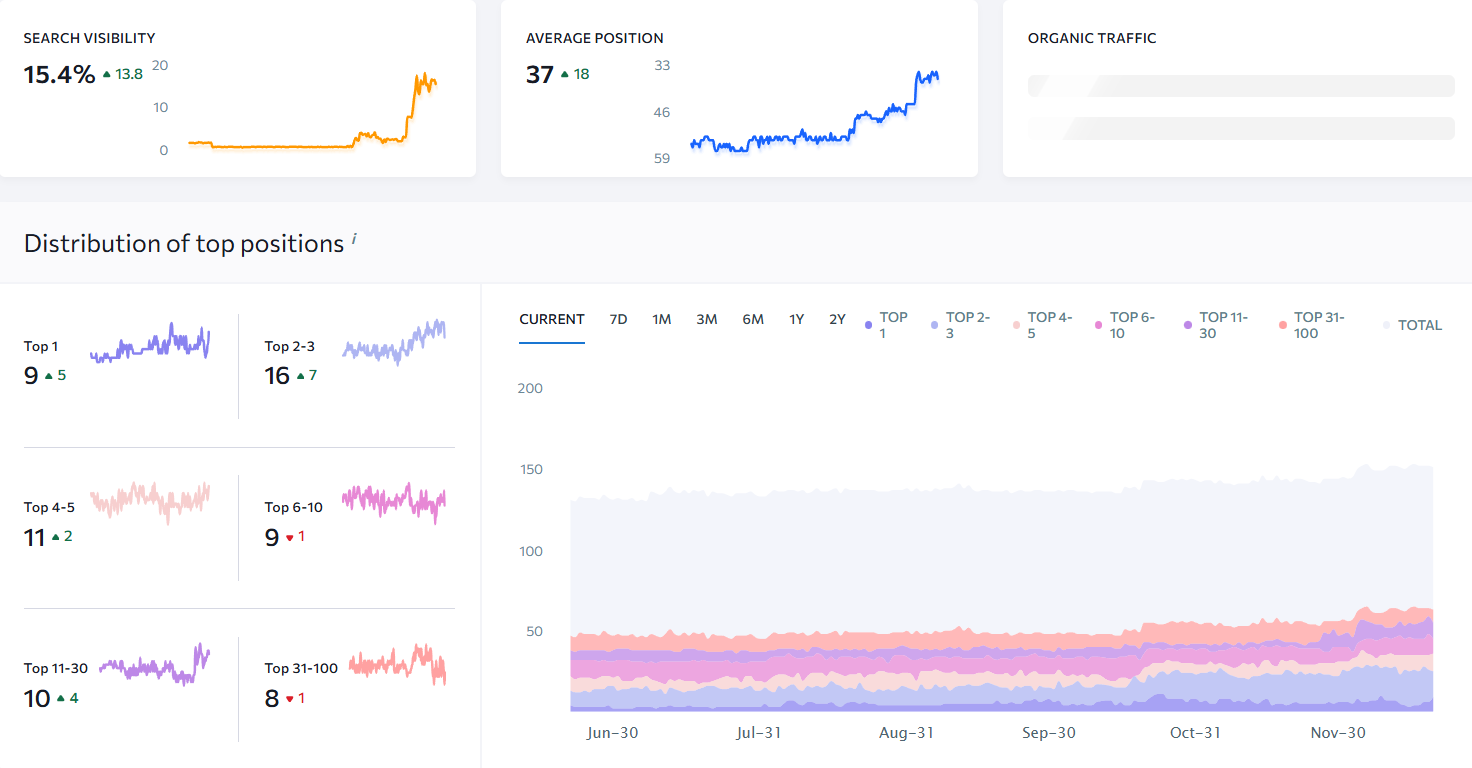
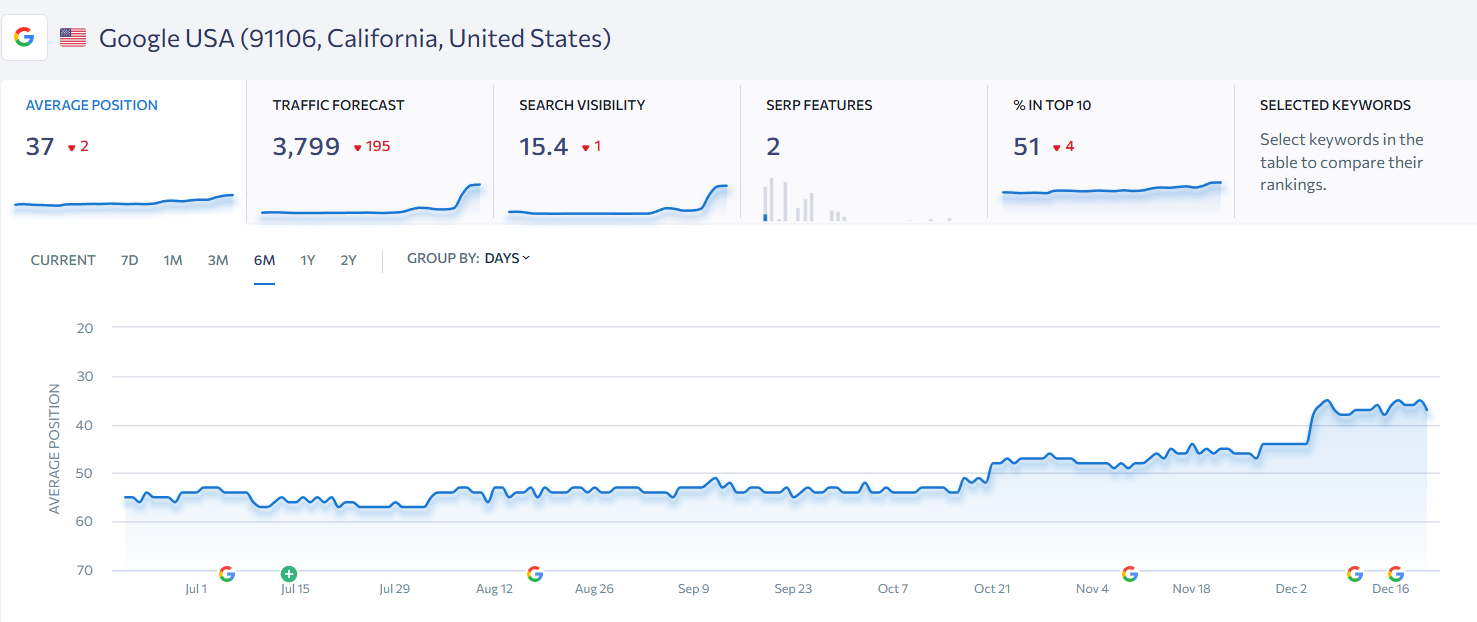
Summary
In summary, SEO is essential for increasing traffic, leads, and revenue for businesses in 2025. Understanding the evolution of SEO and key ranking factors is crucial for success. Advanced keyword research techniques, on-page and technical SEO, and effective content optimization are vital for improving search engine rankings and driving organic traffic.
Link building, local SEO best practices, and measuring SEO success are also important components of a comprehensive SEO strategy. Calculating ROI for SEO investments helps businesses understand the value of their efforts and make informed decisions. Consulting an SEO agency like Aspire Catalyst can provide numerous benefits, including expertise, cost-effectiveness, and protection from online risks.
By staying updated with the latest trends and leveraging advanced tools, businesses can enhance their online visibility and achieve SEO success. Aspire Catalyst offers tailored SEO services to help businesses thrive in the digital landscape. Embrace the power of SEO and transform your online presence in 2025.
Frequently Asked Questions
What industries does Aspire Catalyst serve?
Aspire Catalyst serves a diverse range of industries across businesses of all sizes in Orange County, Los Angeles, Riverside, and San Diego. This broad service area highlights their commitment to supporting various sectors effectively.
What results did a client experience after using Aspire Catalyst’s services?
A client experienced a 25% increase in organic traffic and notable enhancements in keyword rankings after utilizing Aspire Catalyst’s SEO services. This demonstrates the effectiveness of their strategies in driving online visibility.
What services does Aspire Catalyst offer to enhance online visibility?
Aspire Catalyst provides tailored Local SEO services, digital solutions, and comprehensive marketing strategies designed to enhance online visibility and increase organic traffic.
What are the specific areas of expertise for Aspire Catalyst in SEO?
Aspire Catalyst excels in on-page optimization, keyword research, local link building, and off-page SEO services, ensuring comprehensive strategies for improved search visibility.
How does Aspire Catalyst assist businesses in local search results?
Aspire Catalyst enhances businesses’ visibility in local search results by leveraging specialized local SEO services. This targeted approach ensures that your business is more discoverable to potential customers in your area.




